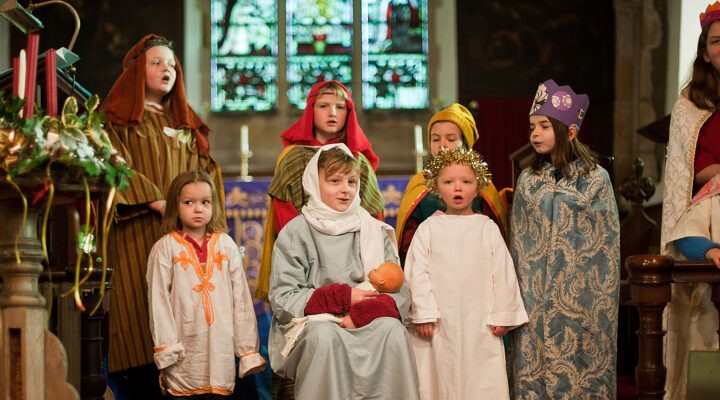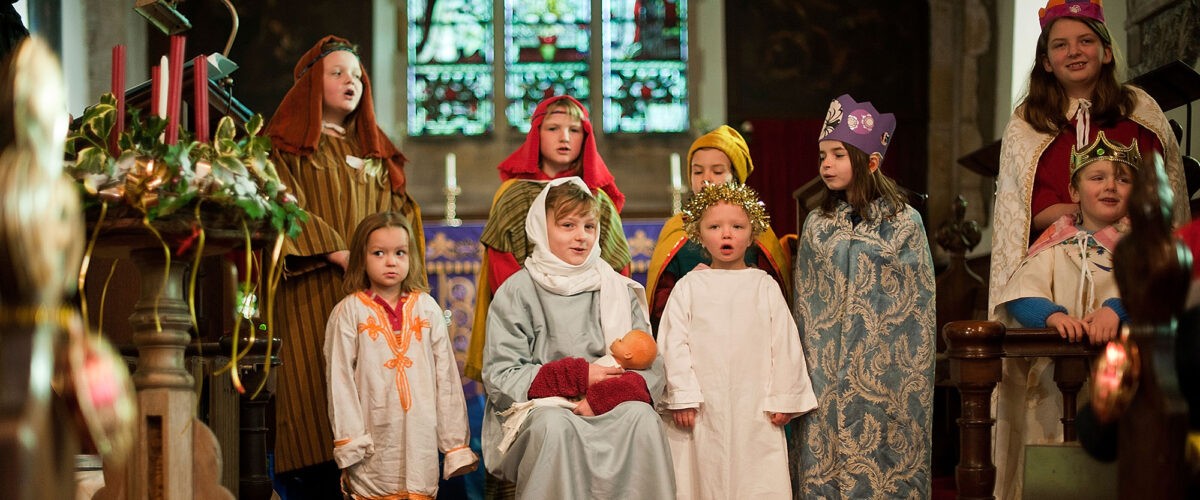Christmas season means a lot of things — family, presents, carols, Hallmark movies, the Grinch, lights, Santa, Nativity scenes, stockings hung by the chimney with care, and the dreaded Christmas pageant.
Why, oh why, did the church decide turning over the telling of one of its most important stories to amateur directors and actors was a good idea?
Year after year, decade after decade, shepherds in bathrobes and wise men in Burger King crowns come to worship the baby doll from the church nursery that’s not really fooling anybody into thinking it’s the baby Jesus.

Susan Shaw
Perhaps I’m jaded. After all, and with apologies to Barbara Robinson and her wonderful book, I was an unhappy participant in the Worst Christmas Pageant Ever. It haunts me still.
Picture it. A small town in Georgia. 1969. Names have been changed to protect the guilty.
Every year my Southern Baptist church put on a Christmas pageant at the city auditorium. The pastor’s wife directed it, and every year it was the same.
The telling of the Christmas story was framed by a contemporary scene with the little kids caroling, dressed up as silver bells. Only, the homemade costumes were just tin foil wrapped over cardboard with a big red bow around the middle. Six-, 7- and 8-year-old children swayed back and forth like bells, singing songs like Away in a Manger, which was pitched so high only small animals could hear the first few notes.
Nine-year-old girls got to be Christmas angels.
I turned 9 that December. I should have been a Christmas angel. Only disaster struck. The pastor’s wife got sick, and Marty Matthews’ mother stepped in to direct.
Marty Matthews was 8 years old. She should have been a silver bell, but she didn’t want to be a silver bell. None of us wanted to be silver bells. Since I was the last of the 9-year-old girls to have reached that high-water mark, I was demoted. Marty Matthews became a Christmas angel, and I was a silver bell. I hate that song to this day.
After we provided the frame for the Christmas story, we cast off our cardboard and tin foil and went to the back of the auditorium to watch the rest of the pageant.
Now, this is where our Christmas pageant departs from the rest. For most Christmas pageants, the story ends somewhere shortly after the angels sing, the shepherds and wise men visit, and Tiny Tim says, “God bless us, every one.” No, wait, I’m confusing my stories.
“That’s right, our Christmas pageant took us all the way up to the Great White Throne Judgment.”
Anyway, our Christmas pageant did not end there. It went on to cover the life, death, resurrection and second coming of Jesus. That’s right, our Christmas pageant took us all the way up to the Great White Throne Judgment.
One by one, people were led before Jesus, clothed in radiant white, sitting on his big white throne. Jesus either welcomed them into heaven or said to them in a booming voice that reverberated throughout the city auditorium, “Depart from me, ye workers of iniquity. I never knew you.”
At that point the devil, played by the pastor’s teenage son dressed head to foot in red, complete with horns and pointed tail, came onto the stage and pulled the unfortunate struggling and screaming soul off into the wings where undoubtedly were awaiting great wailing and gnashing of teeth.
While the audience still sat there in stunned silence (or the beginnings of lifelong trauma in my case), the pastor appeared down front and led an altar call, inviting people to accept Jesus as their personal Lord and Savior so they might avoid the torments of hell so aptly portrayed in our Christmas pageant.
I think somewhere along the way, my well-meaning evangelistic church went off the rails. Somehow, this telling of the Christmas story lost sight of a poor refugee family, a baby in a barn, and the simple truth of God with us.
In many ways, the annual spectacle of the Christmas pageant is a reminder of just how fallible we are, despite our best intentions. The good news of Christmas, of course, is that God still loves us, no matter how ridiculous we are.
“In many ways, the annual spectacle of the Christmas pageant is a reminder of just how fallible we are.”
The problem seems to be that we just can’t seem to find a way to love each other.
We’ve had a rough few years — a presidency that exposed the worst of us, a pandemic that has furthered the divide, a global climate crisis that’s presenting us with apocalypse-worthy fires, floods, tornados, hurricanes, heatwaves, deep freezes and rising oceans. Perhaps the time has come to find a way back to one another before we tear ourselves completely apart at the seams.
All the Advent candles and Christmas pageants in the world don’t mean a thing if we don’t love the very fallible, broken and messy world that God so loved. The tough love of the gospel isn’t the threat of hell. It’s the command to love one another.
Incarnation is about vulnerability. The Christmas story invites us to become vulnerable enough to love — and not just the people we like or agree with or go to church with.
The good news of Christmas is both the simplest and the hardest thing in the world — love God and love your neighbor in deed as well as word, even if your neighbor steals your role as a Christmas angel.
Susan M. Shaw is professor of women, gender and sexuality studies at Oregon State University in Corvallis, Ore. She also is an ordained Baptist minister and holds master’s and doctoral degrees from Southern Baptist Theological Seminary. Her most recent book is Intersectional Theology: An Introductory Guide, co-authored with Grace Ji-Sun Kim.
Related articles:
Let’s keep Herod in Christmas | Opinion by Brett Younger
This Christmas, don’t be so hard on the innkeeper | Opinion by Rob Lee
Searching for the Christ Child? No directions needed | Opinion by Paula Mangum Sheridan


